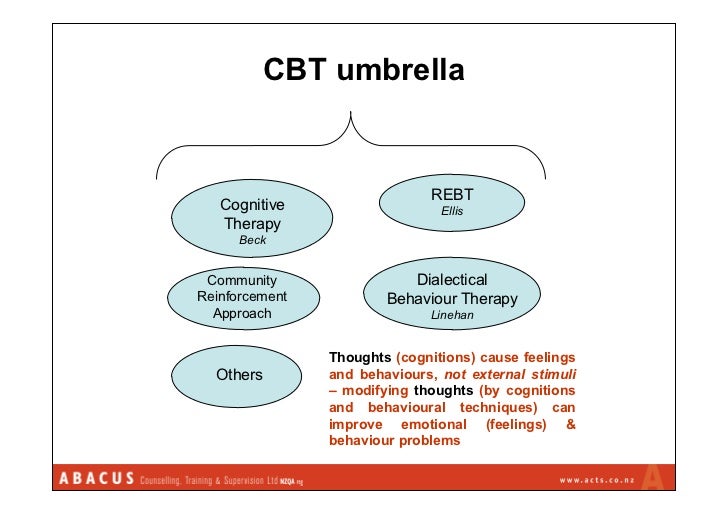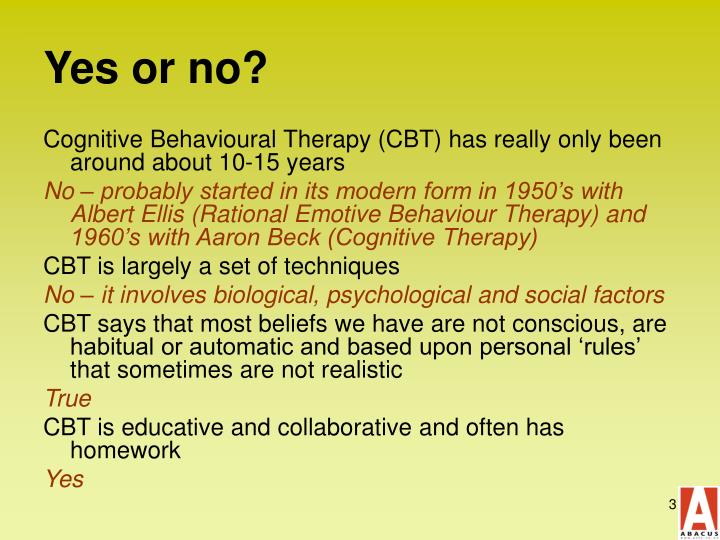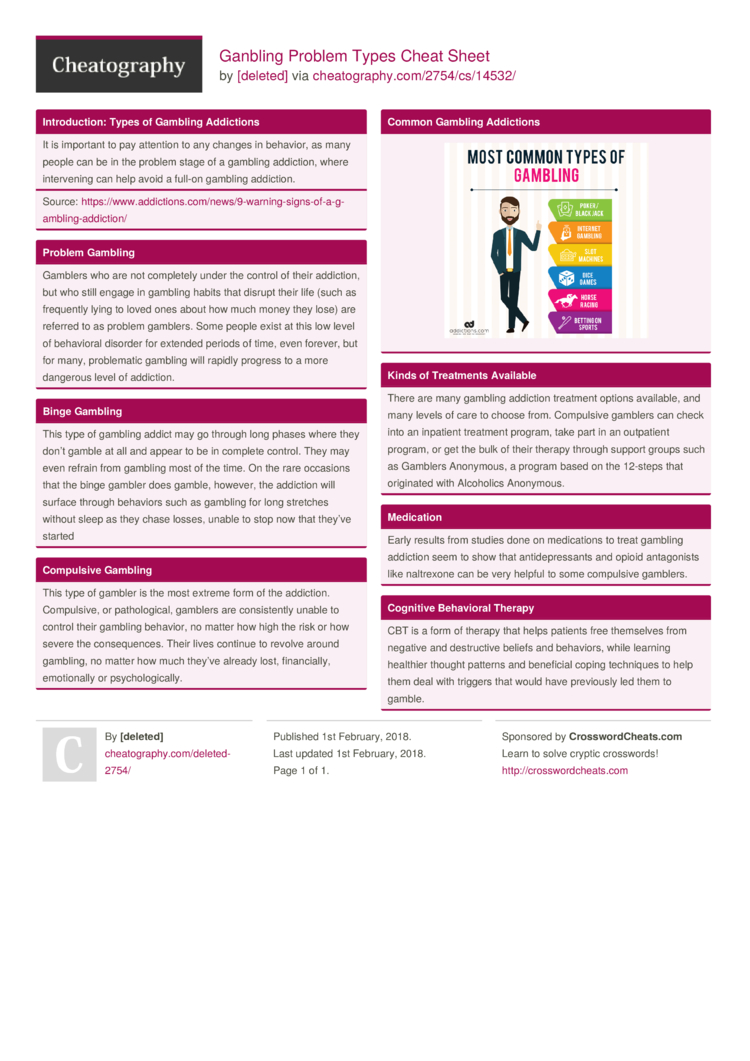Cognitive-behavioural Therapy And Problem Gambling 3,5/5 5724 votes
Cognitive Behavioural Therapy (CBT), is a type of talking psychotherapy, originally pioneered in the 1960’s by a Psychiatrist for the treatment of Depression. It was identified that those suffering from Depression, experienced involuntary thought processes that fall into three main categories:
- Cognitive Behavioral Therapy Research
- Cognitive Behavioral Therapy And Problem Gambling Disorder
- Cognitive Behavioral Therapy Steps
- Internet Based Cognitive Behavioural Therapy
- Cognitive Behavioural Therapy
- Cognitive Behavioral Therapy And Problem Gambling Winnings
The problem gambling (PG) intervention literature is characterised by a variety of psychological treatments and approaches, with varying levels of evidence (PGRTC in Guideline for screening, assessment and treatment in problem and pathological gambling. Monash University, Melbourne, 2011). A recent PG systematic review (Maynard et al. In Res Soc Work Pract, 2015. Doi: 10.11515606977. Background: There is evidence supporting the use of cognitive-behavioural therapy (CBT) in the treatment of problem gambling. Despite this, little is known about how CBT works and which particular approach is most effective. This paper aims to synthesize the evidence for current CBT and propose a more unified approach to treatment. The study concluded that group cognitive-behavioural therapy is impactful therapy in reducing pathological gambling among students. It has also validated the effectiveness of cognitive-behavioural therapy in altering erroneous thoughts and replacing it with a better alternative realistic way of thinking.

- Negative thoughts about themselves
- Negative thoughts about the world
- Negative thoughts about the future
Negative thoughts create negative emotions and render the individual powerless to pull him or herself out of the downward spiral of self destruction. Cognitive Behavioural Therapy has since been evolved to successfully treat a number of different mental health conditions including Addiction, Anxiety, Post Traumatic Stress Disorder and Borderline Personality Disorder.
Primrose Lodge offer all of our patients Cognitive Behavioural Therapy as part of our rehabilitation treatment programme. Our qualified Counsellors are proficient in delivering this highly successful therapeutic treatment methodology. By showing the individual how to change the way that they think and subsequently act, they are provided with a firm foundation to a long and lasting recovery.
How Does CBT Treat Addiction and Mood Disorders?
In order for an individual to fully recovery from any kind of addiction or mood disorder, their thinking must change. The crux of the problem with these disorders lies in the individual’s thinking and their false belief systems. CBT helps to identify and change unhelpful thought patterns through a process of challenging and suggestion by the therapist present. One theory is that those suffering from addiction and mood disorders feel emotions far more intensely than others; this can lead them to seeking methods of changing the way that they feel through chemicals and dysfunctional behaviours. This is only part of the bigger picture though, as we believe those who suffer, also have a physical and spiritual aspect to their illness. This is why our treatment programme contains different therapeutic elements, to ensure that each patient is treated fully and as whole.
Once an individual is able to see the truth, through the aid of CBT, they are then open to taking on a different perspective and approach, one that is far healthier and more rational. Cognitive Behavioural Therapy offers a solution-focused treatment that allows an individual to think and subsequently feel differently, without the need for chemicals, destructive behaviours or substances.
This hugely successful therapy can be delivered during individual therapy sessions as well as in group therapy sessions. It is extremely flexible and can be used to enhance a number of other treatment therapies also. For any individual experiencing difficulties in life, realising that they can change the way that they think and feel in response to that difficulty, provides huge relief and acceptance.
Cognitive Behavioral Therapy Research
“Change the way you look at things and the things you look at change.” – Wayne W. Dyer

How Long Does CBT Take to Work?
Cognitive Behavioral Therapy And Problem Gambling Disorder

CBT is a process not a quick fix. In our experience there is no quick fix to addiction or its common co-occurring mental health conditions. Recovery is an on-going process of change and growth. Primrose Lodge equip each patient with the tools needed to stay clean and sober and go on to rebuild their lives. CBT assists in setting the foundations for recovery by showing the individual what it is they need to change and how they can change it, starting with their thinking. Whilst in the treatment environment, each patient benefits from CBT, combined with other proven therapeutic elements. Primrose Lodge recommend a minimum of 4 weeks treatment; some patients need longer and we can accommodate this. Each individual responds at their own pace to CBT and the other therapies we have to offer. We therefore continually review each patient to ensure they are making satisfactory progress. If necessary our Counsellors will make adjustments to their treatment plan or recommend an extended stay. What we are aiming to provide is a long-term solution to a lifetime condition. No one is ever cured of addiction, but recovery can be found and the illness kept at bay. The only permanent relief we suggest for addiction is complete abstinence, but as a chronic relapsing brain condition, it is vital that the root causes are addressed in order for the individual to stay sober. By undergoing CBT therapy our patients have a better awareness and understanding of themselves. They are able to think with more clarity and apply reason and truth to their thoughts. This serves any recovering addict well, as their brain will always tell them “it wasn’t that bad” or “I will control it this time” or “one won’t hurt!” this is the kind of thinking that often precedes a relapse.
Full recovery from addiction is on going and laying the initial foundations takes time. We therefore encourage our patients to consider a length of stay that gives them the best opportunity to learn and adapt to using the new solution focused processes and way of thinking that we will show them whilst in our care.

The Power of CBT
For many years CBT has a proven track record in treating a number of psychological disorders. This proven Psychotherapy helps to arrest unhelpful thought patterns before they spin out of control. By applying the principles of CBT, patients will be able to see the truth behind their thinking; this will empower them with the choice to either follow through on a thought process or discard it in favour of something more helpful. False belief systems and distressing thought patterns are at the root of negative emotions such as anxiety, fear and anger. Of course sometimes these emotions are justified, but these are the common emotions that an addict will try to escape. In order for an individual to feel comfortable in themselves and their surroundings, their thinking needs to be rational. Once an individual has the ability to recognise the truth from the false, they are on a firm footing in their recovery. They will find themselves accepting things they thought they never would and be able to solve issues they once felt overwhelmed them. They will see themselves and the world with a truer perspective and be accountable for their own part in life.
What CBT Treats
CBT has been proven to be successful in treating all manner of addictions, mood related disorders and conditions. Here are just some of the conditions that we use Cognitive Behavioural Therapy to treat:
Cognitive Behavioral Therapy Steps
- Alcohol and drug addiction
- Gambling addiction
- Sex addiction
- Eating Disorders
- Post Traumatic Stress Disorder
- Obsessive Compulsive Disorder
- Anxiety and Depression
- Co-dependency
Internet Based Cognitive Behavioural Therapy
Permanent recovery always starts with a solid foundation. CBT is a valuable treatment that assists in the process of change, which is why all of our Counsellors are fully trained and qualified in delivering this specific treatment methodology
Cognitive Behavioural Therapy
Our CBT Programme
Cognitive Behavioral Therapy And Problem Gambling Winnings
At Primrose Lodge we use CBT to treat our patients. CBT can be successfully delivered in a number of ways and combined with other powerful healing therapies. We use CBT continually throughout our programme, in individual sessions and also in group therapy. Our Counsellors use person-centred methods of treatment; this means we treat each individual as a whole. Our aim is to provide each individual with the tools that they need to live a happy and drug free life, long after they have left the treatment environment. For more information on our CBT programme, or any other aspect of our recovery programme, please call and talk to a member of our clinical team, who will be happy to assist you further.